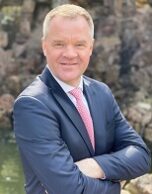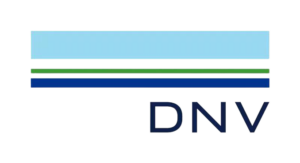2 – 5 December 2025
Shanghai New International Expo Centre (SNIEC), China
中国上海浦东新区龙阳路2345号, 上海新国际博览中心
2 – 5 December 2025
Shanghai New International Expo Centre (SNIEC), China
中国上海浦东新区龙阳路2345号, 上海新国际博览中心

Mr Norbert Kray
Senior Vice President, DNV Group
Country Chair Greater China, DNV Group
Regional Manager Greater China, Maritime at DNV

Moderator: Dr WANG Jinbao,
Former Chairman of ITTC Specialist Committees on Ship’s Operational Performance
Deputy Director of International Exchange Committee of Shanghai Society Naval Architects and Marine Engineers
Senior expert of Marine Design and Research Institute of China
Guest Speaker: Mr Norbert Kray
Senior Vice President, DNV Group
Country Chair Greater China, DNV Group
Regional Manager Greater China, Maritime at DNV
Wang:
Dear audience, Good Thursday. This is Jinbao Wang from Shanghai SSNAME as deputy director of international exchange committee, and senior expert of Marine Design and Research Institute of China. As an important part of the Marintec China, which will be held in Shanghai this December, the “Senior Maritime Forum” focuses on hot topics in the maritime industry, including the just-concluded IMO-MEPC80 meeting. To help better understand this meeting and take appropriate action, the organisers of Marintec China, Shanghai SNAME and Informa Markets, have jointly invited Norbert Kray, to interpret and make suggestions. Mr. Kray is the Senior Vice President and Country Chair -Greater China, from DNV Group. Hello, Kray.
Kray:
Hello, Dr. Wang, Nice to meet you again.
Wang:
So do I. Well, I’d like to briefly introduce Mr. Kray.
He has assumed the current position since Jan. 1st , 2018. Based in Shanghai, he is responsible for overseeing and strengthening DNV’s maritime business in Greater China- strategically one of the most important regions for DNV Group. Mr. Kray is a trained Naval Architect. In 1997, he became DNV surveyor. Since 2002, he has represented DNV in committees of the IACS, and appointed as the Senior Vice President in 2008. Before coming to China, he was Regional Manager for Maritime in Japan since 2014.
Dear Kray. Thank you very much for accepting our invitation. Well, the MEPC80 meeting has proposed the new greenhouse gas(GHG) reduction strategy which will have a profound impact on the entire maritime industry. As a classification society with global influence, DNV’s interpretation and suggestions will be very helpful to maritime industry.
Our first question is how do you evaluate the important progress made by MEPC80 in terms of ship energy efficiency and ship GHG emission reduction? Kray, please.
Kray:
First of all, thank you so much for inviting me to this interview, Dr. Wang. And well, MEPC 80 made a significant step forward on the decarbonization of shipping, setting a net zero target by around 2050, as well as ambitious intermediate checkpoints in 2030 and 2040, and another important part of the strategy is the clear timeline for developing measures which should be adopted by 2025 and enter into force by 2027. These measures will include a technical well to wake GHG intensity requirement on fuel and energy, as well as an economic element setting a price on the GHG emissions.
Wang:
Thanks for your comments. The progress from the meeting is really impressive and important. Well, the new strategy reads:“ to peak GHG emission from international shipping as soon as possible and to reach net-zero GHG emissions by or around 2050” as you just mentioned. How do you understand the important timeline – 2050, and net-zero? And What’s your suggestion from a technical viewpoint? Please.
Kray:
Yes, I think setting a clear target for achieving net-zero in 2050 means that the fuel transition need to start and accelerate within the next decade and the net-zero target means that emissions and sustainability of fuel production must be addressed. The IMO has already started the work through the adoption of life cycle assessment guidelines for fields and this is the key guideline for determining the requirements to future fuels, and we also expect that onboard carbon capture will be addressed in the guidelines as well in the future.
Wang:
Thanks, very clear timeline and clear goals. Thanks for your analysis and your suggestion. Well, to clarify the decarbonization path of the international maritime industry, the strategy has set up “indicative checkpoints” for 2030 and 2040, which says, “to reduce the total annual GHG emissions from international shipping by at least 20%, striving for 30% by 2030, compared to 2008; and to reduce by at least 70%, striving for 80% by 2040. ”. How do you interpret and evaluate this strategy? And what’s your advice to the marine industry? Please.
Kray:
Well, I think the checkpoints are important as they indicate that early reduction is also important, and these checkpoints will be important to consider when developing new measures and also for the review of the CII and EEXI regulations due in 2025. And DNV’s advice is that shipping companies develop decarbonization strategies for both their existing fleet and also for their new building program to ensure that they are ready for net zero operations in the future. The strategy should address both energy efficiency as well as what fuels to use. For the time being, fuel flexibility will be important. While all efforts should be put into improving energy efficiency as future fuels for sure will be going to be more expensive.
Wang
OK, nice. It’s very important to increase energy efficiency and also future fuels. However, the task is still quite challenging. Your explanation and advice are very valuable and helpful.
The new strategy proposes that “uptake of zero or near-zero GHG emission technologies, fuels and/or energy sources to represent at least 5%, striving for 10%, of the energy used by international shipping by 2030″. How can we achieve this target and what’s your prediction of global clear fuel supply? From your experiences, what challenges will it face? Please.
Kray:
Yeah. Thank you for this very good question, Dr. Wang, and well over time we assess that it is fully possible to scale up the fuel production. In the short term to 2030, it is more challenging for sure, but biofuels are likely to be important and should be sufficient to cover the 5% to 10% target. The IMO just issue a circular on the application of biofuels under the existing regulations. And the onboard carbon capture is also a promising solution, but the barriers remain on the technology maturity, permanent storage and also on the regulations. But overtime, electric fuels will be more important, as access to renewable energy and production will scale up.
Wang:
OK, sustainable supply of clear fuel might be a challenge. Thanks for your analysis and remarks.
On January 01, 2026, a comprehensive assessment of short-term measures such as EEXI, CII statutory requirements and related guidelines will be made. What is DNV’s predictions or directions as to where EEXI and CII will go in the future?And what are your recommendations for the maritime industry? Please.
Kray:
Well, in the first view, we expect that the CII continues to be applicable with the reduction requirements set to 2030 and with improvements on the method and correction. We also expect a stricter enforcement of the CII, and in parallel we will see further measures to develop overtime and we expect to see a streamlining of the regulations from the IMO, which could mean further changes to CII and EEDI. Nevertheless, we however, do not think that the EEXI will further strengthen unless we also see a more or similar strengthening of the EEDI. In the short term, the maritime industry will have to live with the fragmented regulatory framework with IMO regulations developing and regional requirements in the EU, with the fuel AU and EU ETS. Well, it remains to be seen if the regional regulations are sunset if the IMO develops equally effective regulations. And the DNV’s recommendation is to continue to focus on improving energy efficiency, both technically and operationally, and to prepare for future fuels. Reducing the carbon footprint will reduce regulatory and commercial risks in the future.
Wang:
Yes, very important both from a technical and operational point of view. Thanks for your helpful prediction and enlightening recommendation.
Well, Mr. Kray, thank you very much for your wonderful analysis and generous sharing. I believe it will be of great help to the entire maritime industry. I am sure that the DNV will continue to make more valuable contributions to the maritime industry and the GHG emission reduction. We look forward to meeting you in Shanghai at the upcoming Senior Maritime Forum.
Kray:
Thank you so much Dr. Wang for this nice interview, and I really appreciate it. And as you mentioned, we have here in the early December, the Marintec China in Shanghai. It’s the first Marintec China after COVID, and I’m really looking forward to it and for sure we will all invite our good customers here from China and also from abroad to visit us here in Shanghai. I wish you good luck with the Marintec China. Thank you so much.
Wang:
The same luck for you and see you.
Our dear audience, on September 7, we will continue to organise webinar on new fuels and new energy. So please continue to stay tuned.